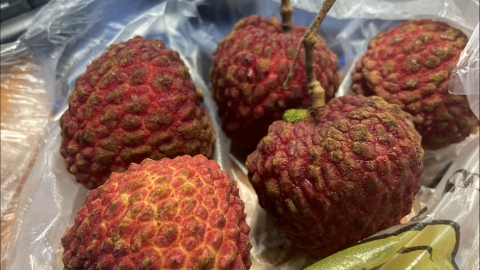Can I eat lychee during the postpartum recovery period (Zuo Xiao Yuezi)?
Whether a postpartum woman can eat lychee during the puerperium depends on her physical condition and the manner of consumption. It is acceptable to consume a moderate amount of lychee at room temperature if the gastrointestinal function is normal and there is no excessive intake. However, lychee should not be consumed if the woman has gastrointestinal weakness, abnormal blood glucose levels, excessive intake, or consumes overly cold lychee. Detailed explanations are as follows:

If the mother has normal gastrointestinal digestive function during the puerperium, without discomfort such as abdominal pain or diarrhea, and her blood glucose levels are stable, eating a moderate amount of lychee at room temperature can help replenish nutrients. Lychees are rich in glucose, vitamin C, and protein. Eating 5-8 lychees per serving can quickly restore energy, vitamin C helps promote wound healing, and protein enhances immunity, which is beneficial for postpartum recovery.
If the mother has weak gastrointestinal function, such as indigestion or bloating, or if she has gestational diabetes with poor blood glucose control, she should avoid eating lychees. Lychees have a high sugar content, which can easily cause blood glucose fluctuations and increase the burden on the gastrointestinal tract. Eating chilled lychees straight from the refrigerator may further irritate the stomach and intestines, leading to abdominal pain or diarrhea, which can affect postpartum recovery. In such cases, lychee consumption should be avoided.
During the puerperium, lychees should be consumed at room temperature, with strict control over the quantity. The mother should primarily monitor her gastrointestinal condition and blood glucose levels. Consumption should be stopped immediately if any discomfort occurs. A balanced and nutritious diet should be emphasized in daily meals.







